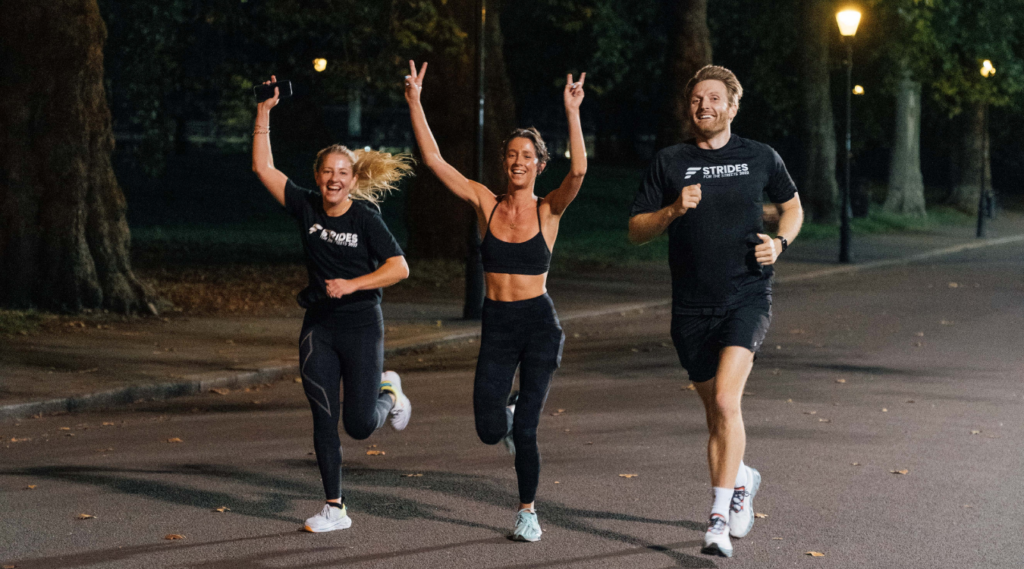Runna Series Part 1 – How to taper pre-marathon

The London Marathon is almost upon us!
For many, the preparation for the marathon has long been underway. These final few weeks are no different. It’s time to put the finishing touches on the pre-race prep and plan out the big day.
With the expertise of the running maestros at Runna, we’re going to be providing you with a 3 part series geared towards just that.
- Part 1 will cover how to taper pre-marathon.
- Part 2 will provide some top tips for race day.
- Part 3 will give you the low down on how to maximise recovery post-marathon.
For those of you who don’t know (you’re missing out), Runna is a personalised running coaching platform with tailored plans to achieve your goals, from training for a faster 5k to your first marathon. Here more about our experience with it here.
What is tapering?
Tapering is a really important part of the training process and one that shouldn’t be overlooked! It involves significantly reducing the intensity and volume you run in the final few weeks going into important races. It might feel counterintuitive but it is a really important part of the training process and one that shouldn’t be overlooked.
What is the purpose of a taper?
In the week or two before a race, provided you have accumulated a decent block of training, it is unlikely that you will gain any more fitness, so this is a great time to wind down and get ready to race. It’s also important to reduce the risk of injury in the final weeks.
Winding down the training allows your body to recover and absorb the hard period of training so you can re-energise before the race effort. Hard training blocks can take a big toll on the body, sapping energy levels and reserves.
By cutting out the amount of volume and intensity in the week leading up to the race you allow the body to catch up and recover so you are ready to be your best on race day.
What are the benefits of tapering?
There are 4 key benefits of tapering. These include:
- Replenish energy reserves
- Repair Muscle damage
- Reduces fatigue
- It freshens up your body so you can give it your all on race day!
What should I do when I am tapering?
Tapering usually starts the day after your final long training run. When you are tapering, you are spending less time out running, which gives you a lot more free time. So what should you do with all of this newfound time?
The focus of tapering is on recovery, so it’s best to get some extra sleep, focus on mobility and make sure you are eating high-quality meals. This is also a great opportunity to catch up with friends or family who you might have previously been too busy to see!
We still want to keep up some speed work to keep us ‘sharp’ and capable of running fast. However, we do this with much less volume than a normal training block.
For most of us, tapering feels super counter-intuitive and can be the hardest period of a training block. We’ve spent weeks and months training hard, building good routines and building our mileage only to feel like we’re going backwards right before the race.
Trust the process. When everything magically falls into place halfway through your race, you’ll realise why we did it this way.
Part 2 coming soon and for more on FFF’s experience using Runna, check out our blog here.
Feeling inspired to lace up your trainers? Runna is your personalised running coach with tailored plans to achieve your goals, from training for a faster 5k to your first marathon – they’ve got you covered. Download Runna today to claim your two weeks of free coaching to help you reach your next running goal with code: FRESHFITNESS. Get started here and thank us later!
Need a plan to support your running regime – get involved. Get £50 off a 5-day trial with code: BLOG50. Start your trial here! Order today and start smashing your goals with personalised nutrition!
Fresh Fitness Food provides personalised meal plans delivered straight to your door, ensuring not only that you have the nutrients you need to manage your stress levels, but also that you have the time usually spent shopping, cooking and washing up, to engage in your favourite stress-reducing activity.
- The Comfort of Tradition: Why We Crave Holiday Foods - December 23, 2024
- Is There a Place for Ultra-Processed Foods in Your Diet? - November 29, 2024
- Tempeh and Quinoa Power Bowl Recipe - November 7, 2024